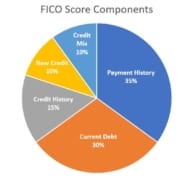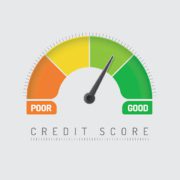Choosing the right mortgage lender is an important decision, and not always the easiest. With so many options out there, including banks, credit unions, and mortgage companies, it can be hard to know where to start.
If you’ve been searching “how to choose a mortgage lender,” you’re not alone, and you’re in the right place. This guide breaks down what to look for, what to avoid, and the right questions to ask so you can move forward with confidence.
Know What You Need in a Lender
Before you start comparing rates or filling out applications, take time to define what you need, not just in a mortgage, but in the lender who will help you get there. The right lender isn’t just about numbers; it’s someone who understands your financial situation and offers the right solutions to match.
Understand Your Mortgage Needs
Start by thinking through your goals and financial picture:
- What’s your monthly comfort zone? Factor in taxes, insurance, and maintenance along with your mortgage payment.
- How long will you stay in the home? A long-term stay might favor a fixed-rate loan, while a shorter-term plan could make an adjustable-rate option more appealing.
- How much can you put down? A larger down payment might qualify you for better rates, but there are also low and no-down-payment options if needed.
Clarifying these priorities early helps you focus on lenders who offer programs that align with your financial goals, whether that’s stability, flexibility, or support for unique circumstances.
Identify Your Borrower Type
Every buyer’s journey is different, and your background may influence which lenders and loan options are best for you. Consider where you fit:
- First-time buyers may benefit from added guidance and access to programs that reduce upfront costs.
- Self-employed individuals often require a lender experienced in evaluating non-traditional income.
- Veterans, rural buyers, and low-to-moderate income borrowers may qualify for alternative loan programs.
Explore Special Loan Programs You May Qualify For
Special loan programs can lower the barrier to entry for many buyers, but only if your lender knows how to navigate them. These options can include:
- FHA Loans – Backed by the Federal Housing Administration; FHA loans are ideal for buyers with lower credit scores or limited savings.
- VA Loans – Offered to eligible veterans, service members, and surviving spouses with zero down and no mortgage insurance.
- USDA Loans – Designed for rural areas, USDA loans feature no down payment and reduced mortgage insurance costs.
- Down Payment Assistance (DPA) – Local or state programs (like MSHDA in Michigan) can help cover your down payment or closing costs.
Not all lenders offer these programs, so if you are interested in seeing if you qualify, choose a lender who has the expertise to guide you through the requirements.
Research the Different Types of Mortgage Lenders
Not all mortgage lenders operate the same way. Rates, loan programs, fees, and flexibility can vary depending on the type of institution.
Common mortgage lenders include:
- Banks and credit unions
- Online lenders
- Independent mortgage companies
- Mortgage brokers
Mortgage companies often provide the broadest selection of loan products, including government-backed programs and down payment assistance options.
Get Pre-Approved Before You Shop
Once you’ve narrowed down your mortgage needs and explored loan options, the next step is getting pre-approved. A preapproval is a crucial step that gives you clarity and a competitive edge in the homebuying process.
What is a mortgage pre-approval?
It’s a lender’s written estimate of how much they’re willing to let you borrow, based on your income, credit, debt, and assets. Unlike prequalification, which is often just a quick estimate, pre-approval involves verifying your financial documents and running a credit check.
Why it matters:
- You’ll know your budget. Pre-approval helps you focus your home search on what you can truly afford.
- You’ll be taken seriously. Sellers and real estate agents are more likely to prioritize your offer if you’re already pre-approved.
- You’ll move faster. In competitive markets, having pre-approval in hand can give you the speed advantage you need to make a strong offer quickly.
What documents do you typically need?
- Recent pay stubs or proof of income
- W-2s or tax returns
- Bank statements
- ID and Social Security number
- Authorization for a credit check
Evaluate Communication, Customer Review, and Lender Reputation
When choosing a mortgage lender, trust and communication go hand in hand. A lender might advertise a competitive rate, but if they’re hard to reach or poorly reviewed, the process can quickly become stressful. Here’s how to assess both reputation and service quality:
Do your research:
- Check customer reviews on Google, Zillow, or LendingTree.
- Look for consistent feedback about responsiveness, clarity, and reliability.
- Use the NMLS Consumer Access site to confirm licensing and spot any disciplinary actions.
Test their communication early:
- Are they quick to respond to your calls or emails?
- Do they explain things clearly and thoroughly?
- Do they offer multiple ways to connect (phone, email, video, in-person)?
- Are they proactive with updates and timelines?
Why it matters:
You’ll be working closely with your lender during a high-stakes financial decision. Choosing someone who’s both reputable and communicative helps ensure your loan experience is smooth, transparent, and stress-free.
Ask Questions Before You Commit
Even after narrowing down your options, don’t feel pressured to rush into a decision. Choosing a mortgage lender is a major financial commitment, and asking the right questions up front can help you avoid unexpected issues later. A good lender will welcome your questions and answer them clearly.
Here are a few things to ask:
- What’s the estimated timeline from application to closing?
- Will I have a dedicated loan officer to work with throughout the process?
- What communication methods and frequency can I expect?
- Are there any current special offers/incentives I qualify for?
- Are there any lender-specific fees I should know about?
- What’s your policy on rate locks, and how long is mine good for?
- Is there a prepayment penalty if I decide to pay off my loan early?
Why it matters: Asking these questions helps you gauge how transparent, responsive, and experienced a lender really is. It’s also a chance to understand the full cost of borrowing and avoid surprises when you get to the closing table.
Ready to Choose the Right Mortgage Lender?
Knowing how to choose a mortgage lender can make loan shopping easier. It’s all about working with someone who understands your goals, simplifies the process, and earns your trust. That’s exactly what you’ll find with Michigan Mortgage.
Our experienced loan officers take the time to understand your needs and walk you through your options with clarity and confidence. In addition, we are equipped to help buyers with specialized loan programs, including MSHDA, VA, USDA , first-time buyer support, zero-down options, and fast closings.
Let’s find the mortgage that fits your life. Contact us today to get personalized guidance and take the next step toward homeownership with confidence.









 These loans are backed by the Federal Housing Administration (FHA). This type of loan may be more attractive to someone who has less than perfect credit. They require a down payment of at least 3.5% of the purchase price.
These loans are backed by the Federal Housing Administration (FHA). This type of loan may be more attractive to someone who has less than perfect credit. They require a down payment of at least 3.5% of the purchase price.

 A mortgage is a loan, and like other bank loans, it comes with an interest rate – it’s how lenders make enough money to stay in business. This is usually a percentage of the loan amount, and you pay it off alongside the
A mortgage is a loan, and like other bank loans, it comes with an interest rate – it’s how lenders make enough money to stay in business. This is usually a percentage of the loan amount, and you pay it off alongside the 